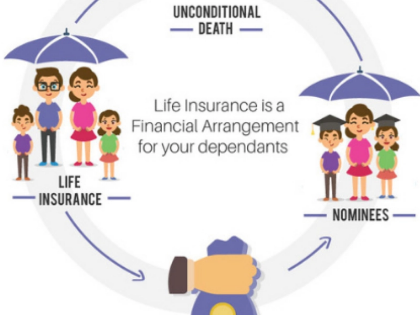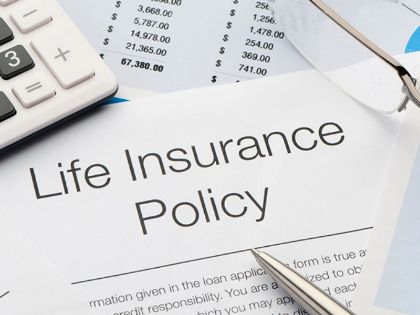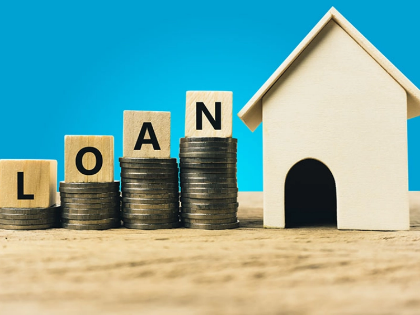What Are Your Options for Bad Credit Debt Consolidation Loans?
Consolidating debt entails using a single loan to pay off several debts. By doing this, you can lower the number of late payments that appear on your credit report, save interest and charge costs, and increase your credit utilization ratio. A minimum credit score in the mid-600s is typically required by lenders in order to be eligible for a debt consolidation loan. Compare prices, fees, and conditions by shopping around.
Internet Moneylenders
 For borrowers with poor credit, there are several internet lenders offering debt consolidation loans. These lenders might offer you a personal loan with a cheaper interest rate if you want to combine several loans. A fixed term or variable rate are just two of the loan terms and repayment alternatives they can provide.
In most cases, these lenders base their loan acceptance choices on your credit score, but there are other variables that may come into play as well. For instance, asking for a debt consolidation loan right before requesting an application for a large purchase, like a house or car, could raise suspicions in the eyes of lenders and make it more difficult to get accepted.
When searching for a debt consolidation loan with bad credit, it's critical to compare prices. Based on your credit score, you might be able to find a lender who can provide you with a loan with favorable conditions, but you should also check other costs, including origination, lateness, and prepayment penalties.
Debt consolidation might help you save money if your credit isn't the best since it can streamline your debt management and reduce your monthly payments. But you should only think about this option if it makes sense financially and would enable you to reach your financial objectives.
For borrowers with poor credit, there are several internet lenders offering debt consolidation loans. These lenders might offer you a personal loan with a cheaper interest rate if you want to combine several loans. A fixed term or variable rate are just two of the loan terms and repayment alternatives they can provide.
In most cases, these lenders base their loan acceptance choices on your credit score, but there are other variables that may come into play as well. For instance, asking for a debt consolidation loan right before requesting an application for a large purchase, like a house or car, could raise suspicions in the eyes of lenders and make it more difficult to get accepted.
When searching for a debt consolidation loan with bad credit, it's critical to compare prices. Based on your credit score, you might be able to find a lender who can provide you with a loan with favorable conditions, but you should also check other costs, including origination, lateness, and prepayment penalties.
Debt consolidation might help you save money if your credit isn't the best since it can streamline your debt management and reduce your monthly payments. But you should only think about this option if it makes sense financially and would enable you to reach your financial objectives.
Unions Credit
 Since credit unions can provide competitive rates and don't require a good credit score, they are a popular choice for debt consolidation loans. By checking and correcting inaccuracies on your credit report, you can also increase your chances of being accepted by lowering your debt-to-income ratio and credit use. Furthermore, you can improve your chances of approval and interest rate by applying with a cosigner or coborrower.
Online lenders like Marcus, SoFi, and LendingClub are excellent options for consolidating debt. It's simpler to compare rates when you shop around because these lenders can pre-qualify you for personal loan amounts, periods, and rates without requiring a hard inquiry.
If the lender allows it, you can instruct them to send the loan proceeds straight to your creditors rather than to your bank account after you've been accepted. It's crucial to thoroughly read the loan's terms and conditions before signing. Origination costs and late payment penalties can mount up when dealing with certain lenders.
A debt consolidation loan might not be the best course of action if your credit is poor. As an alternative, you might think about debt management plans or debt negotiation as approaches to addressing your balances. Alternatively, you might concentrate on paying off your current obligations and wait to apply for a higher rate on a more reasonable loan until your credit has improved.
Since credit unions can provide competitive rates and don't require a good credit score, they are a popular choice for debt consolidation loans. By checking and correcting inaccuracies on your credit report, you can also increase your chances of being accepted by lowering your debt-to-income ratio and credit use. Furthermore, you can improve your chances of approval and interest rate by applying with a cosigner or coborrower.
Online lenders like Marcus, SoFi, and LendingClub are excellent options for consolidating debt. It's simpler to compare rates when you shop around because these lenders can pre-qualify you for personal loan amounts, periods, and rates without requiring a hard inquiry.
If the lender allows it, you can instruct them to send the loan proceeds straight to your creditors rather than to your bank account after you've been accepted. It's crucial to thoroughly read the loan's terms and conditions before signing. Origination costs and late payment penalties can mount up when dealing with certain lenders.
A debt consolidation loan might not be the best course of action if your credit is poor. As an alternative, you might think about debt management plans or debt negotiation as approaches to addressing your balances. Alternatively, you might concentrate on paying off your current obligations and wait to apply for a higher rate on a more reasonable loan until your credit has improved.
Conventional Creditors
 It could be difficult to locate a lender that will provide you with a debt consolidation loan if you have bad credit. Compared to traditional loans, online lenders can offer lower interest rates and frequently have more relaxed credit score requirements. You should be aware, though, that some internet lenders impose upfront costs or alter the conditions of the loan at closing. This can add up and make the debt consolidation loan less expensive.
Another option for debt consolidation loans is a credit union, which frequently offers more lenient approval standards than traditional lenders. To apply, though, you must first become a member. It's also possible that credit unions provide greater interest rates than certain online lenders.
Examining your credit reports and credit ratings is the best method to find out if you qualify for a debt consolidation loan. Verify any inaccuracies or contested facts that can affect your creditworthiness. Before you apply for a debt consolidation loan, think about making efforts to raise your credit score if it is poor.
Looking around for the best terms and rates on personal loans is a smart idea. Before selecting a loan to refinance your debt, compare the annual percentage rates (APR) of each one. The APR includes the interest rate as well as any associated costs. Compare the monthly payments for other loan terms as well. Although a longer term may result in lower initial payments, it will ultimately cost you more in interest.
It could be difficult to locate a lender that will provide you with a debt consolidation loan if you have bad credit. Compared to traditional loans, online lenders can offer lower interest rates and frequently have more relaxed credit score requirements. You should be aware, though, that some internet lenders impose upfront costs or alter the conditions of the loan at closing. This can add up and make the debt consolidation loan less expensive.
Another option for debt consolidation loans is a credit union, which frequently offers more lenient approval standards than traditional lenders. To apply, though, you must first become a member. It's also possible that credit unions provide greater interest rates than certain online lenders.
Examining your credit reports and credit ratings is the best method to find out if you qualify for a debt consolidation loan. Verify any inaccuracies or contested facts that can affect your creditworthiness. Before you apply for a debt consolidation loan, think about making efforts to raise your credit score if it is poor.
Looking around for the best terms and rates on personal loans is a smart idea. Before selecting a loan to refinance your debt, compare the annual percentage rates (APR) of each one. The APR includes the interest rate as well as any associated costs. Compare the monthly payments for other loan terms as well. Although a longer term may result in lower initial payments, it will ultimately cost you more in interest.
Examine your credit
 Credit checks are necessary for any loan application, but they become much more crucial when you're trying to get loans for debt consolidation. The conditions of your loan, including the interest rate, will be decided by your credit score. Higher rates and surcharges are usually associated with a lower credit score. Taking action to raise your credit score may increase your alternatives going forward or at least increase your chances of obtaining a better rate on a debt consolidation loan.
The greatest sources of debt consolidation loans for borrowers with poor credit are internet lenders, who focus on offering personal loans with accommodating qualifying requirements. To compete with traditional lenders, they usually provide competitive interest rates and conditions for payback.
You can try a bank or credit union that provides personal loans to clients with poor credit in addition to online lenders. You might be able to get a better interest rate from some banks than from an online lender, but to be eligible for the lowest rates, you'll probably need to have very good credit.
It might be time to look into other debt relief options if your bad credit prevents you from being approved for a debt consolidation loan. You may be able to work with a nonprofit credit counselor to build a debt management plan, or you may be able to negotiate better conditions for repayment with your creditors.
Credit checks are necessary for any loan application, but they become much more crucial when you're trying to get loans for debt consolidation. The conditions of your loan, including the interest rate, will be decided by your credit score. Higher rates and surcharges are usually associated with a lower credit score. Taking action to raise your credit score may increase your alternatives going forward or at least increase your chances of obtaining a better rate on a debt consolidation loan.
The greatest sources of debt consolidation loans for borrowers with poor credit are internet lenders, who focus on offering personal loans with accommodating qualifying requirements. To compete with traditional lenders, they usually provide competitive interest rates and conditions for payback.
You can try a bank or credit union that provides personal loans to clients with poor credit in addition to online lenders. You might be able to get a better interest rate from some banks than from an online lender, but to be eligible for the lowest rates, you'll probably need to have very good credit.
It might be time to look into other debt relief options if your bad credit prevents you from being approved for a debt consolidation loan. You may be able to work with a nonprofit credit counselor to build a debt management plan, or you may be able to negotiate better conditions for repayment with your creditors.













